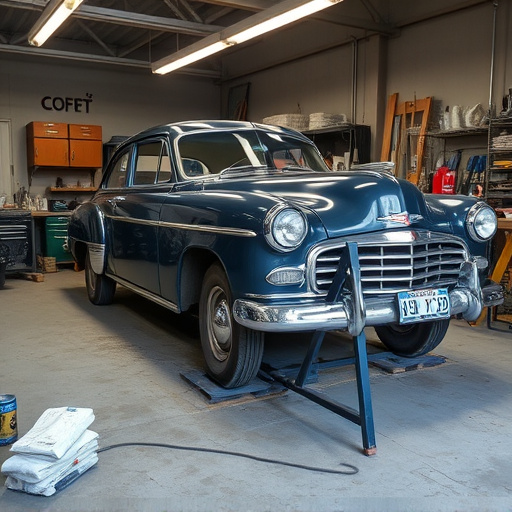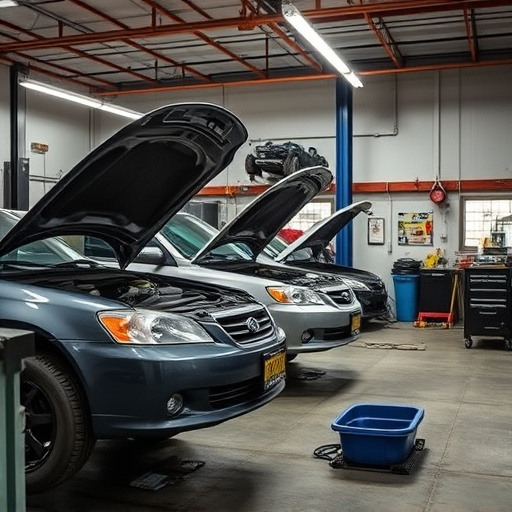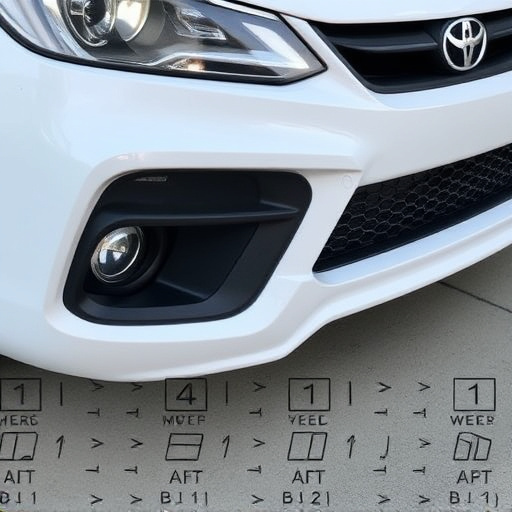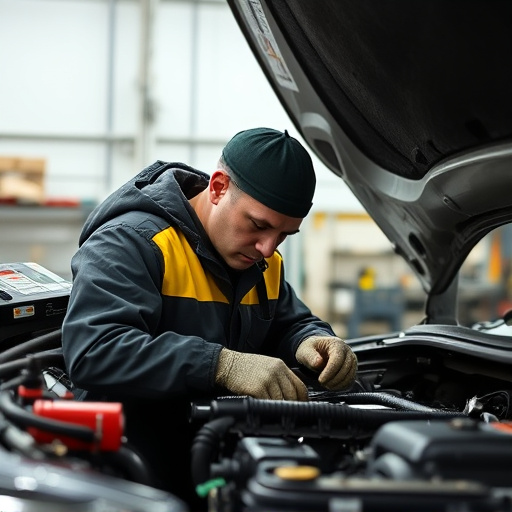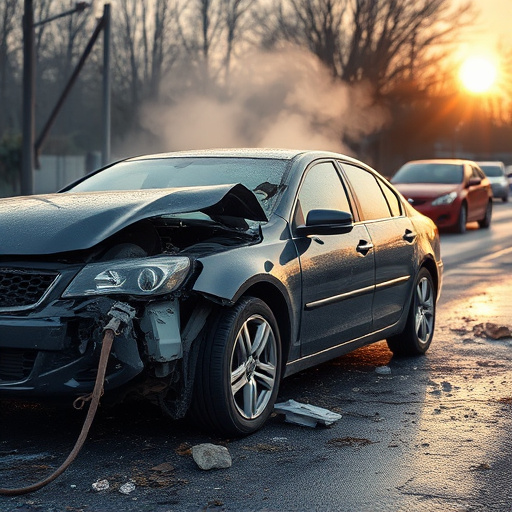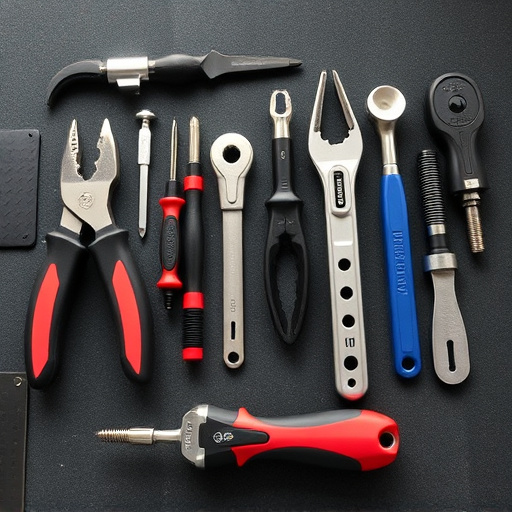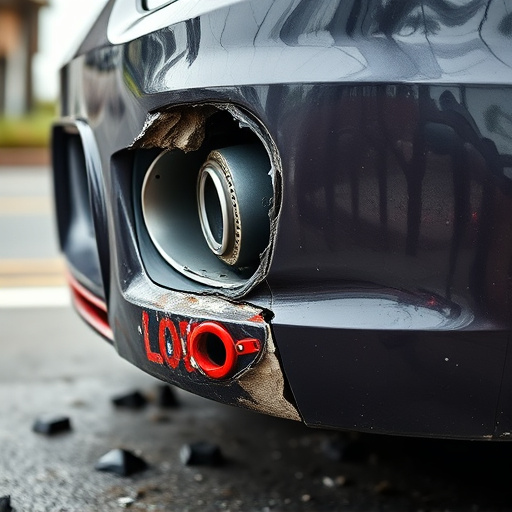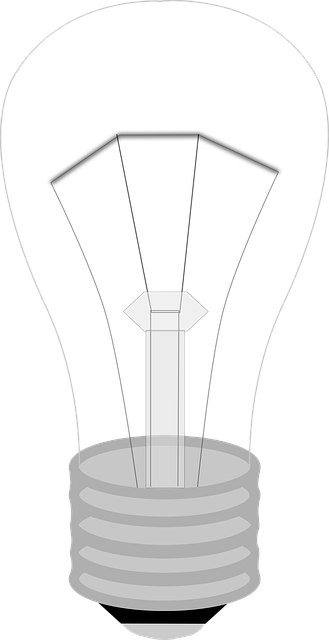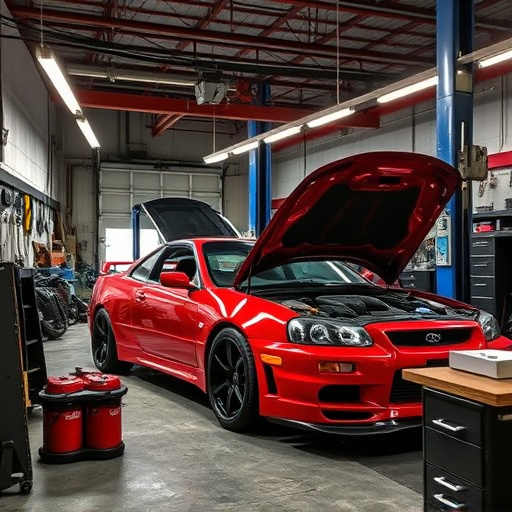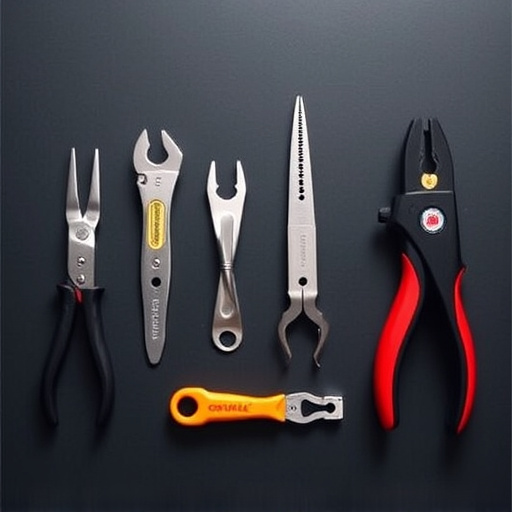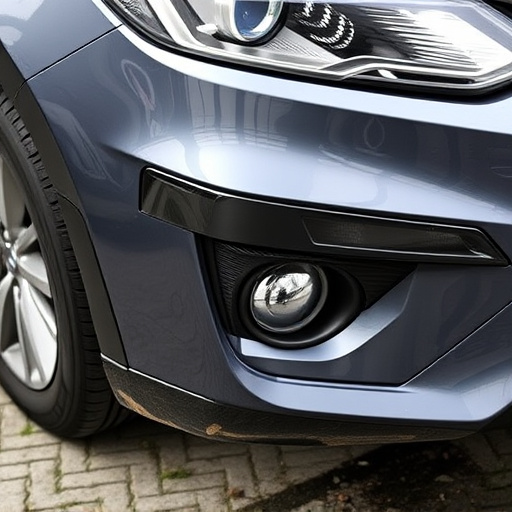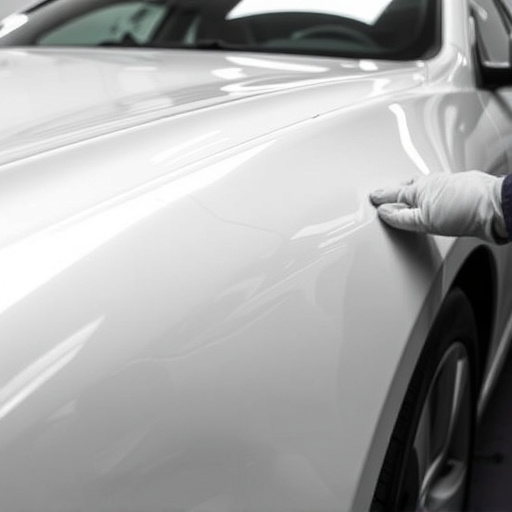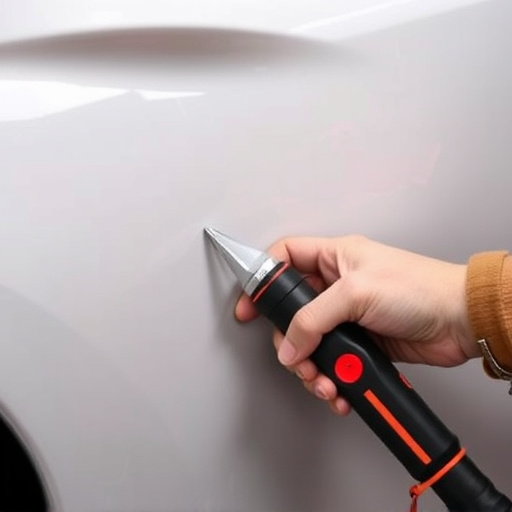Tesla aluminum welding certification is a crucial skill for automotive professionals in collision repair and paint restoration, ensuring high-quality repairs that meet Tesla's stringent standards using lightweight aluminum alloys integral to their designs. The rigorous hands-on evaluation tests precision, adherence to joint designs, and adaptability to real-world scenarios, equipping welders with the expertise needed for Tesla vehicles' intricate welding tasks and revolutionizing the automotive sector.
Tesla’s aluminum welding certification is a significant milestone for automotive professionals. This rigorous process involves practical testing, ensuring welders meet high standards crucial for constructing Tesla vehicles’ lightweight, durable frames. The hands-on evaluation criteria cover strength, aesthetics, and efficiency. By mastering these skills, welders contribute to the efficient production of electric vehicles, aligning with Tesla’s innovative approach to sustainability and performance.
- Tesla Aluminum Welding: Certification Requirements
- Hands-On Testing: Evaluation Criteria
- Mastering Welding Skills for Tesla Vehicles
Tesla Aluminum Welding: Certification Requirements
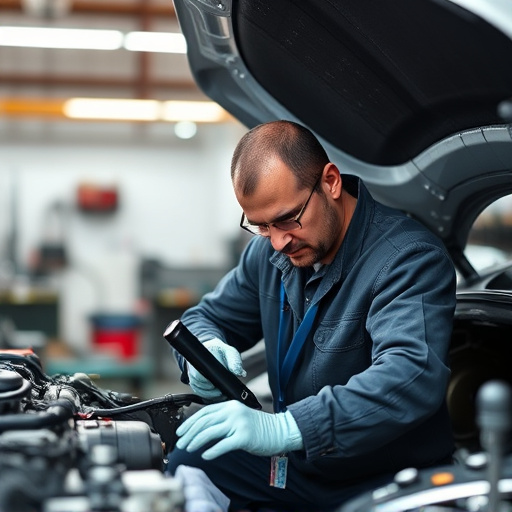
Tesla aluminum welding certification is a significant milestone for any professional aiming to excel in the automotive industry, particularly in specialized areas like collision repair shops and car paint repair facilities. To obtain this certification, candidates must demonstrate proficiency in various hands-on performance testing scenarios. These tests assess their ability to perform high-quality welds on Tesla vehicles’ aluminum body panels, ensuring structural integrity and aesthetic precision.
The process involves mastering specific techniques tailored for Tesla’s advanced aluminum alloy compositions. Professionals are evaluated on their adherence to safety protocols, welding quality, and the overall efficiency of their work. This certification is not just a mark of skill but also ensures that repair shops, especially those specializing in car collision repair, meet Tesla’s stringent standards, thereby delivering superior post-repair results for customers’ vehicles.
Hands-On Testing: Evaluation Criteria
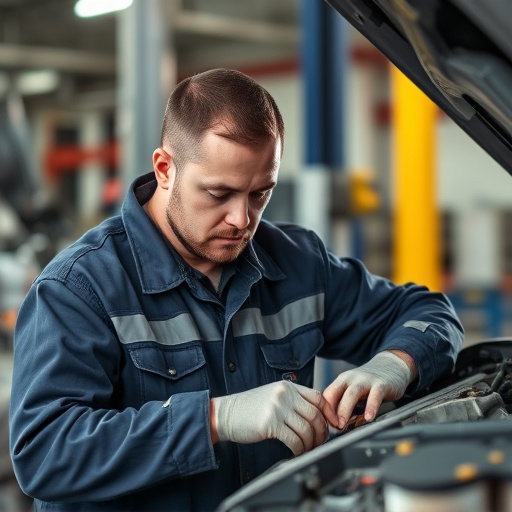
The Tesla aluminum welding certification process is rigorous and hands-on, designed to assess the candidate’s skill and precision in working with this lightweight yet durable material. During the performance testing phase, evaluators scrutinize various aspects of the welder’s work, ensuring it meets the high standards set by Tesla. Key evaluation criteria include the quality of welds, adherence to specified joint designs, and the overall consistency in producing strong, clean, and visually appealing joins.
Welders are challenged with tasks mimicking real-world scenarios, such as joining aluminum panels for body panels or structural components. Each test is meticulously designed to assess not just the final weld quality but also the welder’s ability to adapt to different challenges, interpret technical drawings accurately, and maintain precision under time constraints—skills crucial for any professional in an auto collision center or dedicated auto maintenance facility working with Tesla vehicles.
Mastering Welding Skills for Tesla Vehicles
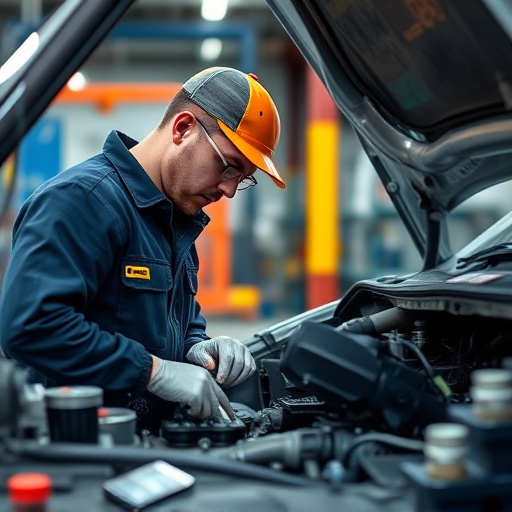
Mastering Welding Skills for Tesla Vehicles
The Tesla aluminum welding certification is a testament to an individual’s proficiency in joining lightweight aluminum alloys crucial for modern automotive design, particularly in Tesla vehicles known for their innovative and efficient engineering. This certification involves rigorous hands-on performance testing, ensuring welders meet the exacting standards required for these cutting-edge cars. In today’s digital era, where sustainability and performance converge, skilled welders play a pivotal role in car restoration and classic car restoration projects, as well as in the production of high-quality automotive body shops.
By acquiring this certification, professionals gain the expertise needed to handle intricate welding tasks specific to Tesla’s aluminum-intensive architecture. This includes mastering techniques for structural integrity and corrosion resistance, ensuring every weld not only aligns with design specifications but also stands the test of time. Such specialized training is vital as Tesla continues to revolutionize the automotive landscape, demanding ever-higher standards from both components and assembly processes.
Tesla’s aluminum welding certification program is a testament to their commitment to excellence in vehicle manufacturing. By focusing on hands-on performance testing, this process ensures that welders meet stringent criteria required for building top-tier electric vehicles. Mastering these skills not only facilitates the production of lightweight, durable components but also plays a crucial role in revolutionizing the automotive industry, making Tesla’s approach a game-changer in the market.
